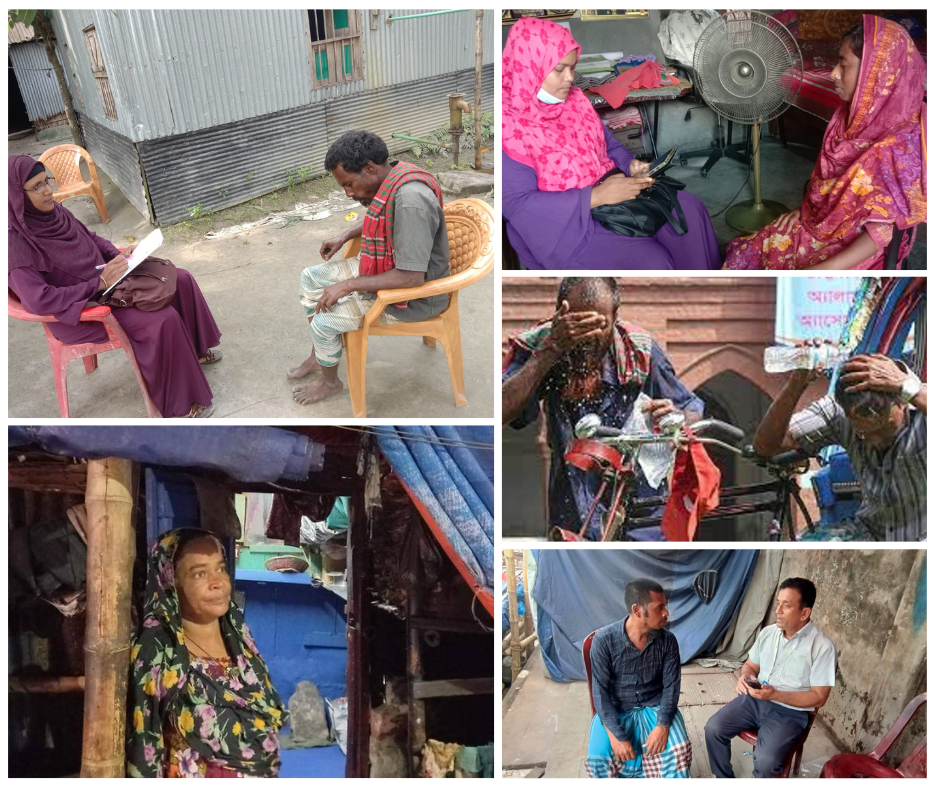Objectives: The primary objective of this study is to explore the context and examine the environmental, social, and economic factors influencing heat stress. It also aims to identify key stakeholders, analyze gender implications, and review relevant policies. Furthermore, the study seeks to recommend interventions to enhance response mechanisms, preparedness, and the overall resilience of disaster management, environmental, health, and other relevant ministries, as well as urban and rural communities.
Location: Gaibandha, Lalmonirhat, and Dhaka District of Bangladesh
Location: For this assignment, AIRD had been involved for almost four (4) months, from 18th September 2024 to 31st December 2024.
Narrative Description of Project: Since April 19, 2024, Bangladesh has experienced six heat alerts, affecting millions of people across the country. The severity of the heatwaves poses a serious threat to vulnerable groups, including the elderly, children, pregnant women, and those affected by illnesses or vulnerabilities. The impacts vary across different socio-economic and livelihood groups, and high temperatures put immense stress on people, especially those engaged in day labor. Concern Worldwide in Bangladesh has been implementing a flood-resilience-focused programme supported by the Zurich Foundation through the Zurich Alliance since 2018. The project aims to strengthen individual communities and the overall system, focusing on increased funding for flood preparedness and improved policy implementation. The project uses comprehensive resilience measurement tools like Flood Resilience Measurement for Communities (FRMC) and Climate Resilience Measurement for Communities (CRMC) with 21 selected communities in Sundarganj and Hatibandha. The study aims to understand the context, stakeholders, gendered implications, policies relevant to heat stress, and areas of recommended interventions to better support disaster management, environment, health, and other ministries in responding to and coordinating heat stress.
Description of Actual Services Provided by AIRD:
AIRD’s services cover some important project components, such as:
- Development of an Inception Report
- Development of an Inception Report
- Methodology Development
- Primary Data Collection
- Data Entry and Analysis
- Evaluation of the project’s progress
- Report Writing
A survey was conducted as part of the quantitative data collection. A total of 576 Samples were considered, where 158 samples were collected from the rural (Belka, Haripur, Kapasia, and Tarapur Unions) and urban (Paurashava) locations of Sundarganj Upazila in Gaibandha District, and 208 samples were collected from the Dhauabari, Patikapara, Sindurna, Shingimari, Goddimari, and Saniajan Unions and Urban locations of Hatibandha Upazila in Lalmonirhat District.


